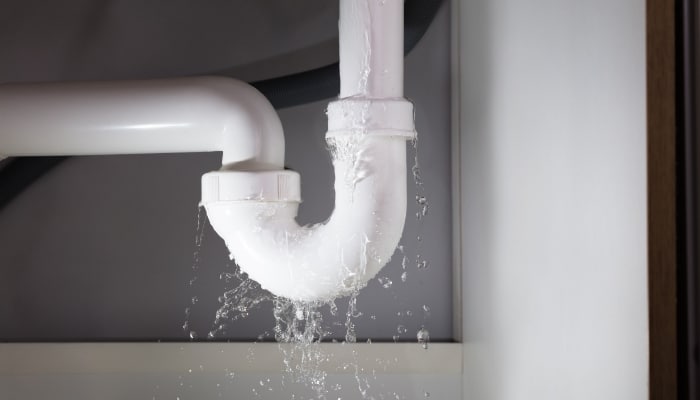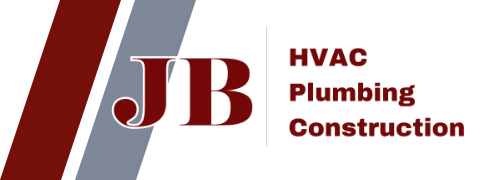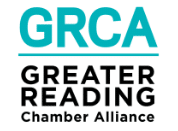
Common Issue Southern PA Homeowers Have with Their Plumbing Systems
When it comes to plumbing, homeowners in Reading, PA and Southern Pennsylvania area, face a mix of common issues—low water pressure, clogged drains, and concerns about water quality. Whether you live in a historic home in Centre Park or a newer development in Wyomissing, plumbing problems can happen to anyone. Here are the top plumbing questions we hear from homeowners and what you can do about them.
1. Why Is My Water Pressure So Low?
Low water pressure can be frustrating, whether you're trying to shower or fill a pot in the kitchen.
The most common causes include:
- Aging pipes – Many older homes in Reading have galvanized steel pipes, which corrode over time and restrict water flow.
- Mineral buildup – Hard water deposits can clog pipes and fixtures.
- Leaky pipes – Even a small leak in your plumbing system can lower water pressure.
- Municipal water supply issues – Sometimes, the problem isn't in your home but in the city's water lines.
Solution:
If you notice a sudden drop in pressure, check if it’s happening throughout your home or just in one fixture. If it’s widespread, a plumber can inspect for leaks, corrosion, or pressure regulator issues. Installing a water softener can also help prevent mineral buildup.
2. Is the Water in Reading, PA, Safe to Drink?
Yes, Reading’s municipal water is treated and meets safety standards, but many homeowners still opt for filtration. Older homes may have lead pipes, and some people notice chlorine or sediment in their water.
Solution:
If you’re concerned about water quality, consider installing a whole-house filtration system or an under-sink water filter for drinking water. A professional plumber can also test your water for contaminants.
3. Why Does My Tap Water Smell Like Sulfur or Chlorine?
A rotten egg smell (sulfur) usually comes from bacteria in your water heater, while a chlorine smell is from city water treatment.
Solution:
- For sulfur smells – Flush your water heater or replace the anode rod.
- For chlorine smells – Install an activated carbon filter to remove the odor.
4. How Do I Prevent My Pipes from Freezing in the Winter?
Winters in Reading can be brutal, and frozen pipes are a big concern, especially in basements and crawl spaces.
Prevention Tips:
- Insulate exposed pipes with foam pipe wrap.
- Keep cabinet doors open under sinks to allow warm air to circulate.
- Let faucets drip slightly on freezing nights to keep water moving.
- Seal any cracks in walls where cold air can reach pipes.
If your pipes do freeze, turn off the main water supply and use a hairdryer or heating pad to thaw them slowly. Avoid using an open flame!
5. What Should I Do If My Basement Floods?
Basements in Reading are prone to flooding, especially after heavy rain. If you walk downstairs and find water pooling, act fast.
Steps to Take:
- Shut off the main water supply if the flooding is from a burst pipe.
- Check if your sump pump is working. If not, you may need repairs or a replacement.
- Call a plumber to inspect for broken pipes, sewer backups, or foundation drainage issues.
- Use fans and dehumidifiers to dry the area and prevent mold.
6. How Often Should I Get My Sewer Line Inspected?
If you have an older home or trees near your sewer lines, it’s a good idea to have a plumber inspect your system every 1-2 years.
Signs You Might Have a Sewer Problem:
- Slow drains throughout the house
- Gurgling noises from toilets
- Frequent backups
- Patches of extra-green grass in your yard (could indicate a leaking sewer line)
A sewer camera inspection can help detect root intrusion, blockages, or damaged pipes before they cause major issues.
7. Why Does My Drain Keep Clogging Even After I Clear It?
If you’re constantly dealing with a slow or backed-up drain, the issue might be deeper in your plumbing system.
Common Causes:
- Grease buildup – Cooking oils and fats solidify in pipes.
- Tree roots – They can grow into underground pipes and cause blockages.
- Collapsed pipes – Older clay or cast iron pipes can deteriorate over time.
Solution:
Store-bought drain cleaners can cause more harm than good. A professional drain cleaning service can clear the blockage safely using hydro jetting or a sewer auger.
8. How Can I Tell If My Water Heater Is Failing?
No one wants to wake up to a cold shower! If your water heater is over 10 years old, watch for these warning signs:
- Water isn’t getting hot enough
- Rust-colored water coming from taps
- Loud rumbling or popping noises
- Leaks around the base of the unit
Solution:
A plumber can inspect your water heater and recommend a repair or replacement. Tankless water heaters are a great option for energy efficiency and endless hot water.
9. What’s the Best Way to Remove Hard Water Stains?
Hard water stains leave behind white, chalky residue on faucets, shower doors, and sinks.
Quick Fix:
- Spray vinegar on stains and let sit for 10 minutes before scrubbing.
- Use baking soda for stubborn buildup.
For a long-term solution, installing a water softener will prevent stains from forming in the first place.
10. Do I Need a Sump Pump in Reading, PA?
If your basement has ever taken on water, a sump pump is a must-have. Even if you’ve never had flooding, a heavy rainstorm or melting snow could cause problems.
How a Sump Pump Helps:
- Removes excess groundwater before it enters your basement
- Prevents mold growth and foundation damage
- Protects against sewage backups (when paired with a backup system)
If you already have a sump pump, test it twice a year and consider a battery backup system in case of power outages.
Need a Plumber in Reading, PA? We Can Help!
From fixing leaks and unclogging drains to installing water heaters and sump pumps, the local plumbers at JB Plumbing can help you keep your home’s plumbing running smoothly. If you’re dealing with any of these issues, don’t wait—call 610-621-3452 and schedule an inspection today or send us your questions online!


